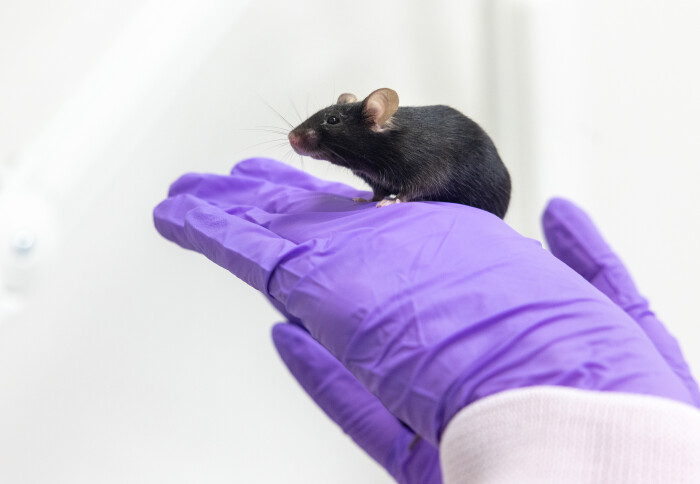Social media campaigns on animal research recognised with Openness Award

Credit: Thomas Angus
Imperial has received an Openness Award for highlighting the work of animal technicians, technologists and researchers on social media.
The Openness Awards, hosted by Understanding Animal Research, seek to recognise those who have championed openness on animal research over the years, and those who continue to do so.

This year’s awards, held this month, recognised campaigns on Twitter and Instagram where individual animal technologists, technicians and technologists shared their thoughts on their work. Early in 2023, Imperial joined the Institute of Animal Technology's (IAT) #TechMonth Campaign, which drew attention to the critical role of animal technicians and technologists in animal research. Collaborating with several staff members at different career levels from Central Biomedical Services, the social media team produced a series of threads shared on X (Twitter). Here, Imperial animal technologists described their experiences of, and feelings about, working in animal research.
The following month, during the annual #MiceInResearch social media event, Imperial engaged with UAR's Instagram followers through an Instagram takeover.
CBS took followers inside Imperial’s state-of-the-art Breeding Unit to talk about research involving mice, and how the animals are cared for. Senior animal technician Stephanie Natario, LMS-MRC PhD student Chiara Pojani, and senior researcher and local AWERB member Elaine Irvine talked about how they care for mice within Imperial’s units, why the university uses mice in research, and how animal research is regulated.
James Bussell, director of biomedical and veterinary services at the University of Oxford, presenting the award, said that Imperial "demonstrated the power and effectiveness of bold, co-ordinated approaches to social media communication."
"As a world-leading medical research institution, animal research forms a small but vital part of Imperial’s biomedical research as we seek new ways to benefit human health." Professor Marina Borotto Director of Bioservices
Anna Napolitano, Communication and 3Rs Programme Manager, who accepted the award on behalf of Imperial, said: "Social media is a powerful tool, particularly to engage with younger audiences, and we can use it to help people to understand why animal models are still crucial in science and how we look after our animals. It also enables those who work in our animal facilities to talk to people directly about what they do and why. At Imperial, we strive to explain how and why animals are involved in research, and we are keen on finding new ways to reach audiences and improve the public understanding of animal research."
Professor Marina Botto, Director of Bioservices, said “This is wonderful news and a well-deserved recognition for all the people that have made it possible. As a world-leading medical research institution, animal research forms a small but vital part of Imperial’s biomedical research as we seek new ways to benefit human health. This award demonstrates, once again, the university’s commitment to be open about the use of animals in research both within Imperial and with the general public. By being open we can show how animal research contributes to medical advances and how we are working to reduce, replace and refine our use of animals, where possible. Many people have contributed to this award - my warmest congratulations to all of them."
Article text (excluding photos or graphics) © Imperial College London.
Photos and graphics subject to third party copyright used with permission or © Imperial College London.
Reporter
Press Office
Communications and Public Affairs
- Email: press.office@imperial.ac.uk
